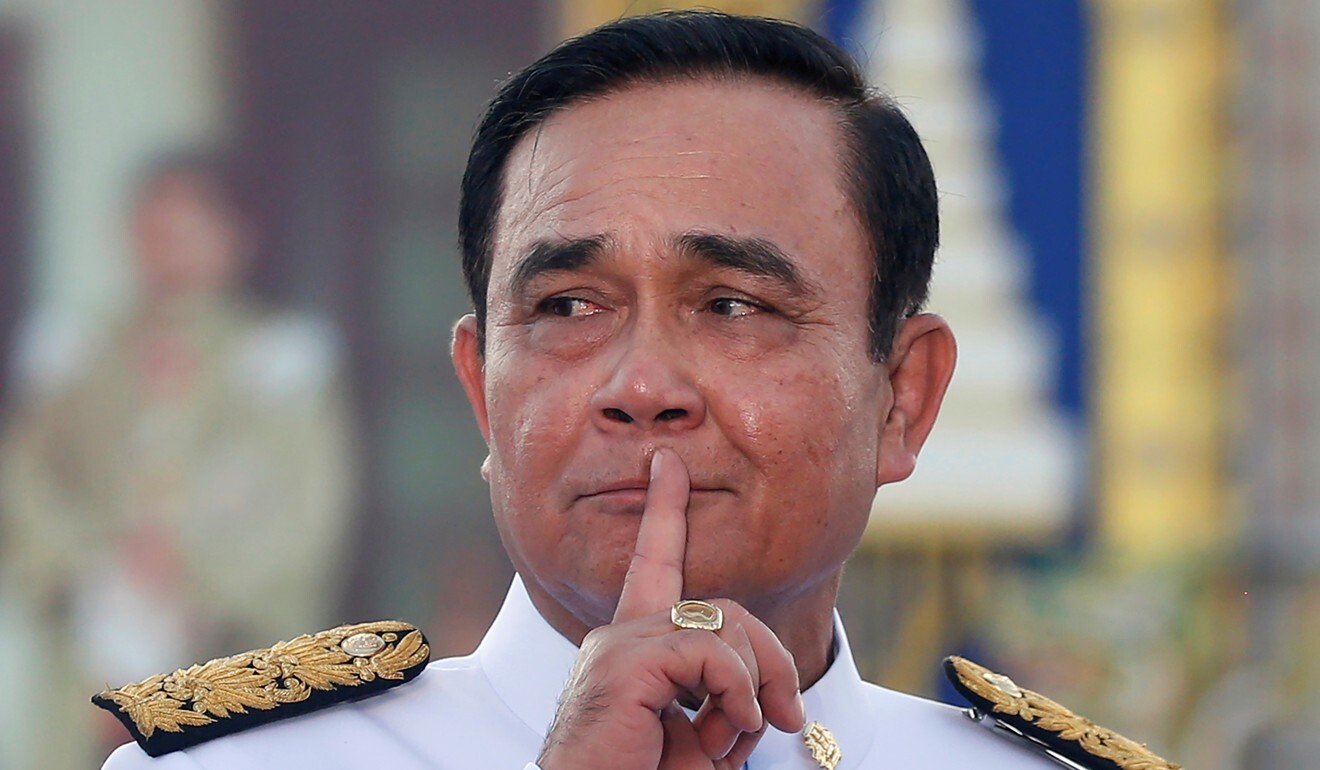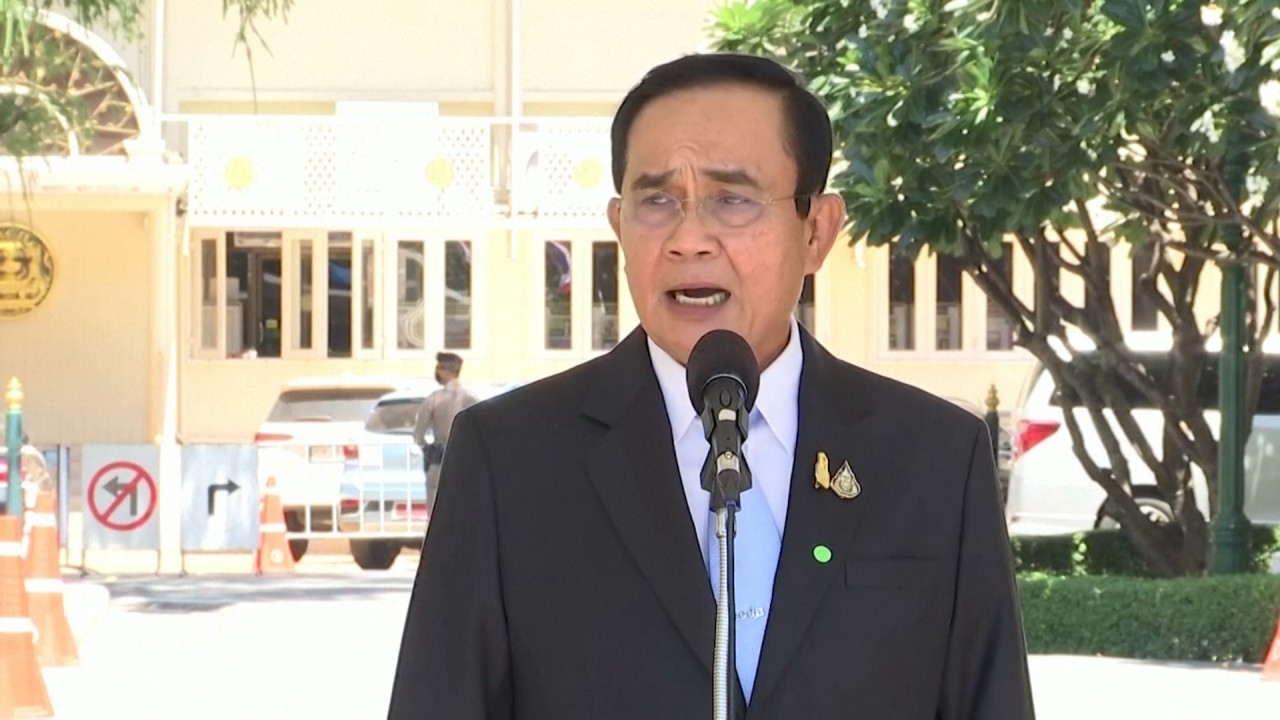
‘Deter Malaysia’: Thailand’s navy wants Chinese submarines as both bargaining chip and deterrent
- Thailand’s navy made a fresh funding push to complete the purchase of three Chinese submarines before a maritime agreement with Malaysia expires
- The boats would give Bangkok more leverage in negotiations and help protect economic interests of some US$77.2 billion per year, navy officials say
An existing co-exploitation agreement between Thailand and Malaysia governing the area in question is not set to expire until 2029, but at a two-hour press conference at the Thai navy’s headquarters on August 24 – hastily convened to defend its renewed push for 22.5 billion baht (US$723.3 million) in funding to cover the cost of the second and third submarines – it was revealed that all three were planned to be deployed before JDA renewal negotiations are set to begin.
If the submarines are operational by 2027, “Thailand will not be in a disadvantaged position” and have enhanced bargaining power when it starts negotiations with Malaysia on the JDA, said Vice Admiral Thalerngsak Sirisawas, head of the navy’s operations department.
Thailand and Malaysia have overlapping claims over some 7,250 square kilometres in the lower section of the Gulf of Thailand. In 1979, both governments signed a 50-year memorandum of understanding on equally sharing the costs and benefits of joint exploration and exploitation of petroleum resources in the area.

This JDA is administered by the Malaysia-Thailand Joint Authority, whose offices are in Kuala Lumpur. Its motto is “Brothers drinking from the same well”, but unfortunately some top brass in the Thai navy appear to have unpleasant feelings about their southern “brothers”.
Thalerngsak disclosed at the press conference that in early August a naval vessel belonging to a neighbouring country he would not name had encroached on Thai waters in the Andaman Sea. The vessel had been involved at the time in a mission to stop boats carrying Rohingya Muslims from approaching Malaysian waters.
The navy asked the Thai Ministry of Foreign Affairs to lodge a formal protest concerning the encroachment, with Thalerngsak lamenting that the navies of neighbouring states sometimes disregard Thailand because they know its navy has no submarines for underwater defence.
Secret strategic thinking
The Thai navy has had to disclose its secret strategic thinking so that people understand why it wants the three submarines by 2027, Thalerngsak said. According to a well-known naval doctrine, submarines are strategic offensive weapons that are useful because they are capable of sneaking into other states’ waters with impunity, he added.
Submarines from neighbouring countries have occasionally been detected operating clandestinely in the Gulf of Thailand, and the Thai navy hopes that the three Chinese-built submarines – which will be better armed and more advanced than those currently deployed by most Asean member states’ – will help it put an end to such intrusions.
Malaysia’s navy has since 2009 deployed two French Scorpene-class attack submarines, and plans to buy two more by 2040.
Malaysia must prepare for possible South China Sea conflict, foreign minister warns
Buy one, get two free
Only China, however, was willing to throw in a submarine for free. Under the terms of the government-to-government deal, a Chinese state-owned shipbuilding conglomerate will build and sell three advanced export variants of the Type 039B Yuan-class submarine – to be called the S26T – for the price of two, or 36 billion baht (US$1.16 billion).
Delivery of the first vessel is scheduled for 2023 and the Thai navy had planned to start sending submariners for training in China this year. Then the coronavirus pandemic hit, which has also forced a delay on payments for the submarines.
In early August, the Thai navy renewed its request for a funding commitment of 22.5 billion baht for the second and the third submarines, to be paid in seven annual instalments.

This request once again attracted public criticism – with parliamentary opposition led by the Phuea Thai Party, which says the funds could be better used supporting Thailand’s economic recovery in the wake of the pandemic.
The Democrat Party – the third largest in Thailand’s 19-party ruling coalition – has also decided to oppose the request, calling for a further payment delay until the economy has recovered, while the second-largest Bhumjai Thai Party is also apparently considering voicing its opposition.
Prayuth’s dilemma
Prime Minister Prayuth Chan-ocha, the former junta leader who is also now Thailand’s defence minister, supports the navy’s submarine programme – but he knows the country is currently strapped for cash. Undoubtedly most Thais would agree that government financial resources must be used primarily to tackle the looming economic crisis.
In the second quarter of this year, Thailand’s economy shrank by 12.2 per cent – its worst performance since the Asian financial crisis of 1997-1998, according to the Office of the National Economic and Social Development Council. The economic outlook for the year as a whole has now been revised downward to a total GDP decline of more than 7 per cent, meaning the Thai economy will only grow weaker this year.
This gloomy outlook is giving the opposition additional ammunition to attack Prayuth, especially over his reluctance to demand additional cuts in military spending during the economic crisis created by the pandemic.
In his capacity as defence minister, Prayuth is actually in a good position to advise the Thai navy to come up with an alternative plan for procuring the submarines and on August 31, he agreed to ask the navy to postpone for another year the payment of the first instalment on the two remaining Chinese submarines.
Thai-China submarine deal backlash shows pressure on Prayuth to defend arms buying spree
However, he emphasised that he still wanted the navy to procure all three vessels, and asked it to start renegotiating as soon as possible.
Cause for alarm?
It is alarming to see that the Thai navy shows rather low confidence in the country’s peaceful coexistence with Malaysia. It also appears to have little faith in the collective regional security offered by Asean.
Judging from what the navy’s top brass said at the recent press conference, Thailand now wants to rely more on itself than on its neighbours, allies, or Asean. Acquiring the three submarines would amount to taking a major step towards creating a “complete and balanced” navy for self-reliance in maintaining Thailand’s maritime security.

02:52
Thailand prime minister warns of national ‘collapse’ if protests keep rattling the country
But a parliamentary battle over the funding commitment for the two remaining Chinese submarines is both unnecessary and avoidable. All parliamentary efforts and the attention of the public can now be focused on amending Section 256 of the 2017 Constitution – concerning constitutional amendments – and, more importantly, on drafting a new and truly democratic constitution.
Termsak Chalermpalanupap is a Visiting Fellow in the Thailand Studies Programme at the ISEAS – Yusof Ishak Institute.
This article first appeared in the publication ISEAS Perspective 2020/101, titled To Deter Malaysia: Thai Navy’s Submarine Acquisition Faces New Opposition

